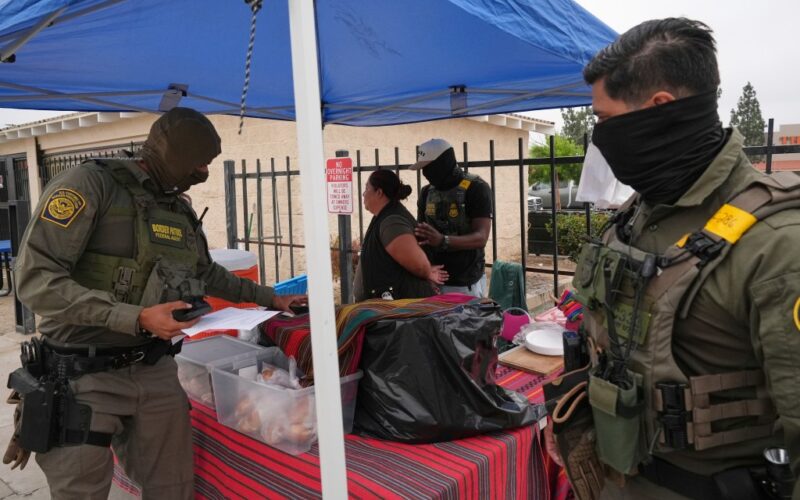ICE agents can once again stop and question people in Southern California if they appear to be Latino, speak Spanish and work as day laborers, the Supreme Court ruled Monday.
Immigrant rights groups and local municipalities had sued to stop the so-called “roving patrols” in the region in July. A federal judge agreed the patrols violated the Fourth Amendment, but President Trump’s administration appealed the decision to the Supreme Court.
The top court voted 6-3 to overturn the lower court’s order, with the six Republican-appointed justices forming the majority. The court did not explain its decision, but Trump appointee Brett Kavanaugh wrote a concurring opinion.
“Whether an officer has reasonable suspicion depends on the totality of the circumstances,” he wrote. “Apparent ethnicity alone cannot furnish reasonable suspicion; under this Court’s case law regarding immigration stops, however, it can be a ‘relevant factor.’”
Trump’s immigration crackdown in Southern California drew a number of protests and lawsuits. Monday’s case concerned the “roving patrols,” in which ICE agents would briefly detain and question large groups of people in locations such as Home Depot parking lots and car washes.
The patrols appeared to slow considerably for two months because of lower court rulings but could resume again at any time following the Supreme Court’s decision.
“We should not have to live in a country where the Government can seize anyone who looks Latino, speaks Spanish and appears to work a low wage job,” Justice Sonia Sotomayor wrote in her dissent, which was joined by the other two Democrat-appointed justices.
Though Monday’s ruling only covers seven counties in Southern California, it is likely to lead to similar raids throughout the nation. Trump has touted plans to send the National Guard into Chicago in attempts to enforce immigration law.
While his previous deployments of the Guard have been ruled illegal by federal courts, the Supreme Court has backed his administration on almost all immigration cases.
“Especially in an immigration case like this one, it is also important to stress the proper role of the Judiciary,” Kavanaugh wrote. “The Judiciary does not set immigration policy or decide enforcement priorities.”








